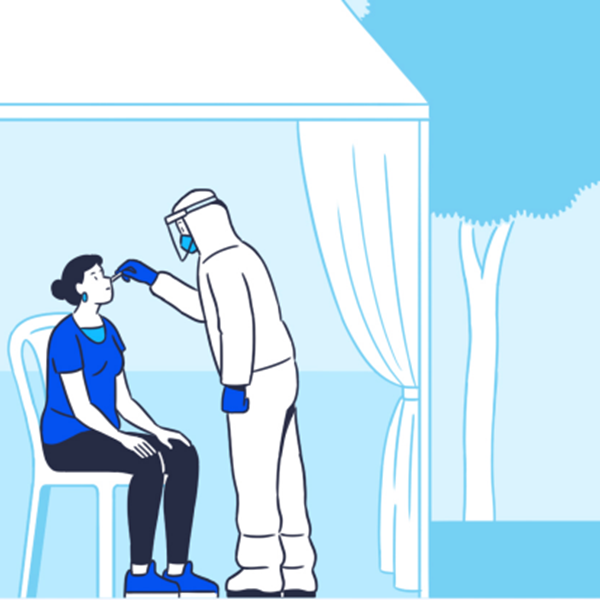What test is done, when, and where When are there results, what is a serological test
-
Test Types
The different types of tests that check COVID infection -
When Should I Take a COVID-19 Test
Who and when should take a COVID test -
How and Where can I get Tested?
How and where are tests taken, and what is the fee -
Test Results
When and how do the test results arrive, and what is the recommendations for a positive result
When Should I Take a COVID-19 Test
When Should I Take a COVID-19 Test
Today there is no obligation to take a COVID test. At the same time, there are cases in which it is recommended to test:
- When feeling sick within 10 days after arriving in Israel
It is recommended to contact your HMO and take a COVID test, or test at a testing station, or by a remote authorized antigen home test. - If symptoms appear at those aged 60 and older or those in at-risk groups
In such a case, it is recommended to take a PCR test, or an authorized test, or a remote authorized antigen home test (for a fee), so you can receive medical treatment if needed.
The cases in which such a test should be done:
- If you have symptoms that may correspond to COVID: fever of 38 degrees Celsius or higher, coughing, or difficulty breathing.
- If you receive a borderline-positive PCR test result: It is recommended to take an additional authorized test within 24 to 72 hours after the first test.

